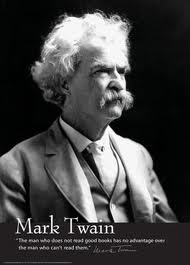During a recent teacher training with a group of middle school teachers, I shared a video titled Why Students Don’t Read What’s Assigned in Class.
In this video, high school students come clean about what they have and haven’t read in high school. When left to read “according to the curriculum,” some students admitted to reading only a couple of books that were assigned. Some read only one. Others said they didn’t do a single bit of the reading that was assigned. As I watched, I wasn’t surprised by these admissions, because after all, I was once one of these very same high school students doing the very same thing—reading Cliff Notes and faking it. It’s discouraging to think that things haven’t changed in 25 years. We know so much more about engaging teaching practices. We have barrels of evidence about how reading volume improves proficiency. Yet, we still churn out generations of kids who don’t read. Why is this?
Still mulling over these heady questions of reading volume and curriculum, I went home to poke around the web, and as I did, I came across a new manifesto by Seth Godin about changing education titled Stop Stealing Dreams. In the opening pages, Seth writes:
We invest thousands of hours exposing millions of students to fiction and literature, but end up training most of them never to read again for fun (one study found that 58% of all Americans never read for pleasure after they graduate school).
There it was again: this idea that in our schools, we don’t create readers.
 And I began to think about why this bothers me so much and in the deep recesses of my mind, I heard the echo of Mark Twain’s famous words:
And I began to think about why this bothers me so much and in the deep recesses of my mind, I heard the echo of Mark Twain’s famous words: “The man who does not read good books has no advantage over the man who cannot read them.”
During the days when our economy was based on factories and a good worker was one who could follow and execute instructions and provide brawn to perform manually difficult tasks, I suppose this was fine. But now, success in a global economy means being one step ahead of competitors; it requires innovation. Reading inspires ideas. It spreads knowledge that leads to new and deeper understandings. Never has the need for an informed and literate citizenry been more important, yet, we are in the same place that we have been for years and years with kids who barely read…
When I talk with teachers about what they believe lies at the root of this problem, they cite things like “curriculum demands” and “getting them ready for the test.” But what I’m wondering is this: Are these “demands” a distraction from what really matters? In “getting ready for the test,” do we sacrifice a more pressing need: getting them ready for life? And if that is indeed the case, what can we do to change this?

I have cut/paste more than a dozen quotes from
Stop Stealing Dreams. Thanks, for the suggestion.
Hi Donna! I'm now almost done with the Seth Godin book. He has a lot of good ideas for a non-educator, don't you think? I appreciate that his tone of teachers is respectful–he really seems to be more about innovating and thinking differently. He's really giving me a lot of food for thought and I'm glad that you're enjoying it too!